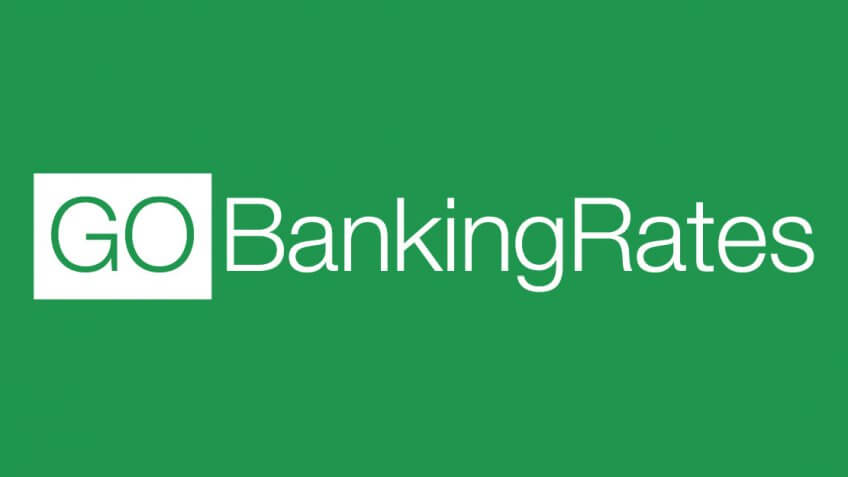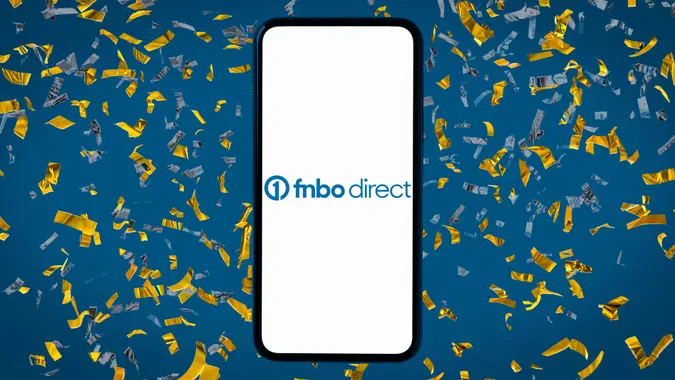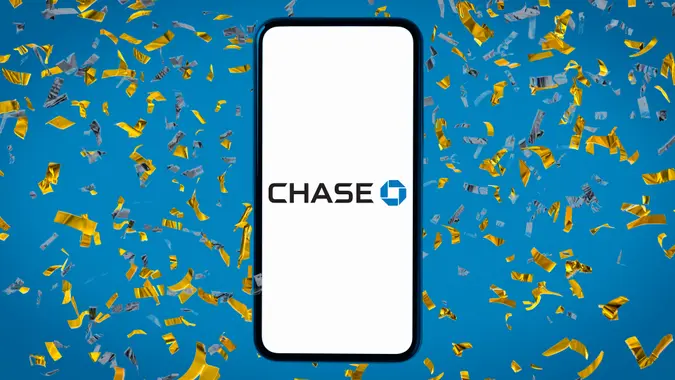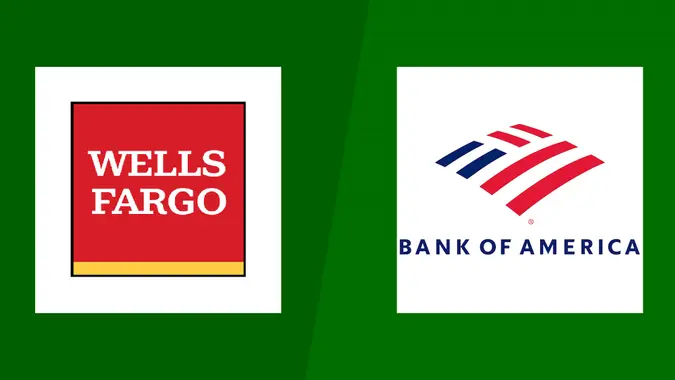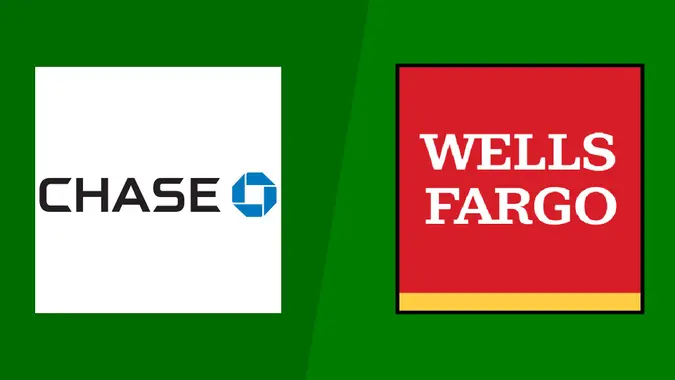TD Bank Overdraft Fees, Protection and Limits: How To Get Fees Waived

Commitment to Our Readers
GOBankingRates' editorial team is committed to bringing you unbiased reviews and information. We use data-driven methodologies to evaluate financial products and services - our reviews and ratings are not influenced by advertisers. You can read more about our editorial guidelines and our products and services review methodology.

20 Years
Helping You Live Richer

Reviewed
by Experts

Trusted by
Millions of Readers
TD Bank’s overdraft fee is $35 if you overdraw on your balance by over $50.
If you have more than one debit card transaction or have a check come in on a day when your balance is low, you may be charged up to three overdraft fees. That’s $105 in charges–just for not staying on top of your checking account balance.
There are ways to avoid those TD Bank overdraft fees, though. Here’s how.
TD Bank Overdraft Policies
TD Bank offers an Overdraft Grace Period, which will allow you until 11 p.m. the next business day to bring your account back to positive before it charges an overdraft fee. If you miss the cutoff time, TD Bank can charge $35 for every transaction made, up to three times a day, for a total of $105.
Standard Overdraft Service
TD Bank’s Standard Overdraft Service comes with most of the bank’s checking accounts. With this service, TD Bank will allow ACH transfers, recurring debit card purchases and personal checks in amounts that exceed your account balance up to three times per day. You’ll be charged the $35 overdraft fee for these items.
If you overdraw your balance by less than $50, the bank will cover the $35 overdraft fee amount. Although that does seem helpful, you should still keep an eye on your spending to avoid getting stuck with a hefty overdraft charge. TD Bank does offer some alternatives to avoid overdrafts as well.
Savings Overdraft Protection
With Savings Overdraft Protection, you’re able to link your savings account to your checking account, so that you can be covered on any overdrafts without having to pay transfer fees.
TD Debit Card Advance
There’s also TD Debit Card Advance, where the bank can authorize a one-time only payment on your debit card or if you’re using an ATM. There will be no overdraft fees if you’ve overdrawn on your balance by $50 or under. There is a maximum of three overdraft charges each day.
How To Avoid TD Bank Overdraft Fees
The best way to avoid overdraft fees is to spend responsibly and monitor your account balances regularly by downloading the TD Bank mobile banking app. Here are some tips that can help you avoid incurring overdraft fees:
Here are some tips that can help you avoid incurring overdraft fees:
- Opt into overdraft protection
- Sign up for custom email alerts when your balance dips below a set amount.
- Make it a habit to keep a cushion on your funds to prevent overdraft charges.
- Link your TD Bank checking account with your savings account for overdraft protection.
Comparing TD Bank Overdraft Fees to Other Banks
TD Bank is like many other banks that impose an overdraft fee when it occurs. How much are other competitor banks charging, though? Here’s a closer look.
| Bank | Overdraft Fee | Overdraft Protection Option |
|---|---|---|
| TD Bank | $35 per transaction (max 3 per day) | Savings Overdraft Protection, TD Debit Card Advance |
| Bank of America | $10 per transaction | Balance Connect™ |
| Wells Fargo | $35 per transaction (max 3 per day) | Overdraft Protection |
| Chase | $34 per transaction (max 3 per day) | Overdraft Protection |
While the fees may be comparable across different banks, TD Bank’s main offering as well as its Savings Overdraft Protection and TD Debit Card Advance offer a few outlets for customers beyond a single standard policy.
Is Overdraft Protection Worth It?
If you tend to overdraw your account, it makes sense to expand your overdraft protection by linking a savings account and opting for TD Bank’s Savings Overdraft Protection, as you won’t have to worry about your checking account being in the negative as long as you keep enough money in savings.
Even if you think you’re better off having the bank decline your debit card charges to save money on the TD Bank overdraft fee, you might still be on the hook for a bounced or returned check. The check recipient can legally charge you between $20 and $50 if TD Bank doesn’t honor the check you wrote. The maximum fee amount varies by state.
TD Bank Overdraft Fee FAQ
Here's some answers to frequently asked questions about TD Bank and overdraft fees.- Can TD Bank waive overdraft fees?
- Yes, TD Bank has features for banking customers to reduce or avoid the $35 overdraft fee, including Savings Overdraft Protection and TD Debit Card Advance, in addition to its Standard Overdraft Service.
- What happens if I don’t repay an overdraft?
- If you don’t repay an overdraft, one charge is $35. There is a maximum of three overdraft fees that will be charged each day, which totals up to $105. Over time, if you show a history of negative balances and overdraws–or generally consistently poor banking habits– it could eventually lead to your account getting closed. If you choose not to pay back any overdrawn amounts at all, there’s a chance it could also affect your credit score if the bank reports negative information to the credit bureaus. All in all, it’s in your best interest to make efforts to keep your account positive.
- Are there fees for insufficient funds, and how do they differ from overdraft fees?
- TD Bank does not impose nonsufficient funds fees, or NSF, on personal banking accounts, instead offering several other overdraft relief options. An NSF fee is essentially a fee that a bank would charge if your transaction was declined due to not having enough in the account.
How To Dispute or Waive an Overdraft Fee
TD Bank takes overdrafts seriously. It charges an overdraft fee of $35 per occurrence, with a maximum of three charges per day. To avoid TD Bank overdraft fees, take advantage of the Grace Period and consider signing up for Savings Overdraft Protection. If you’re regularly overdrawing your account, check on your spending habits and consider opting into TD Bank’s service that automatically declines all transactions that exceed your available balance.
If you incur a TD Bank overdraft fee and it’s a one-time occurrence, you may visit your local TD Bank branch or call the bank’s customer service department at 888-751-9000. If you explain the situation politely, the customer service representative may agree to remove the fee from your account.
Keep in mind that doing so is entirely at TD Bank’s discretion, so they don’t have to refund you the money if you’ve overdrawn the account and not taken action to bring your balance positive during the Grace Period.
Melanie Grafil and Virginia Anderson contributed to the reporting for this article.
Editorial Note: This content is not provided by any entity covered in this article. Any opinions, analyses, reviews, ratings or recommendations expressed in this article are those of the author alone and have not been reviewed, approved or otherwise endorsed by any entity named in this article.
 Written by
Written by  Edited by
Edited by 






